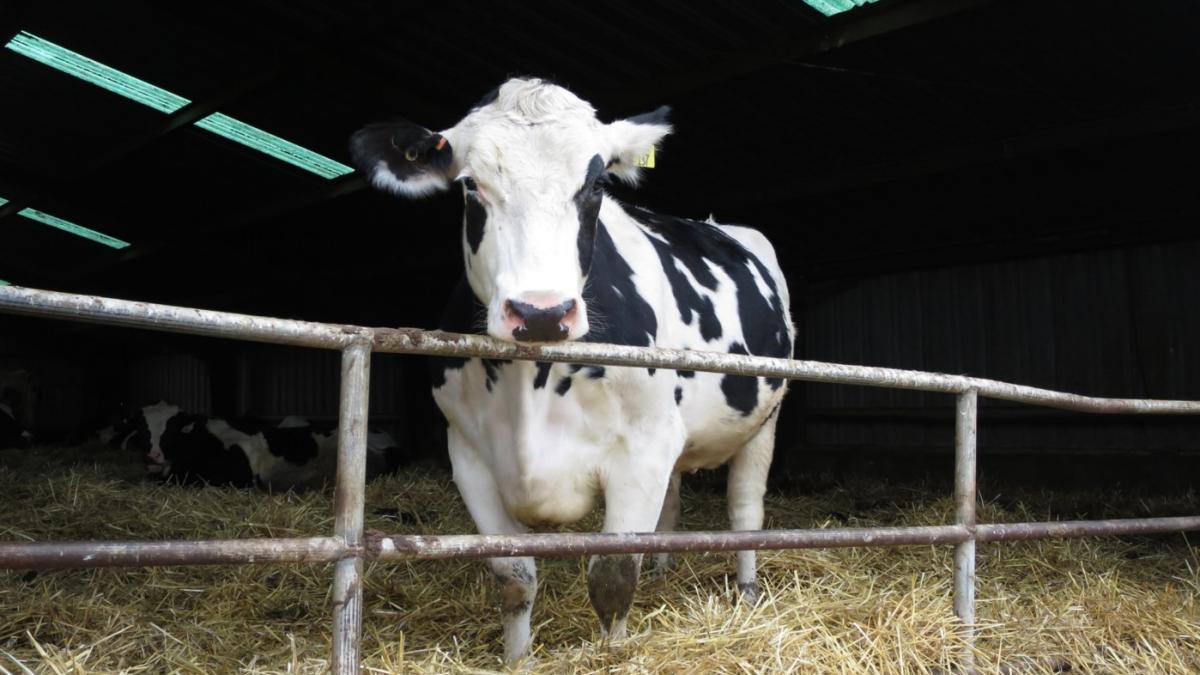
The fast pace of work on a dairy farm or ranch allows little time for dedicated worker safety training. Workers spend long hours and night shifts handling large cattle and navigating slippery terrain. Standardized health and safety training is often not practical due to the unique features across operations. In response to the need, health and safety professionals collaborated to develop training tools, addressing the unique hazards of working in the dairy industry.
“The partnership sought to reduce serious dairy worker injuries by tracking injuries, examining high-risk work tasks with farmers and workers, and developing train-the-trainer programs and a best practices guide.”
- Elena Austin, ScD
It’s no surprise that cattle are the number one cause of injuries in working dairies - including fractures, cuts and lacerations, bruises, contusions and sprains (Washington Department of Labor and Industries, Injury Data, 2009-2016). Dairy workers in the State of Washington have an injury claim rate that is 77% higher than the state average injury rate for all Washington industries. Another important injury type, Slips, Trips, and Falls (STFs), were the second most common cause of injury reported for WA dairy workers from 2008 to 2017. Although STFs are not unique to the dairy industry, daily interaction with slippery walkways and cattle amplifies workers’ risk for injury.
In response to the growing need, safety experts from Washington State Dairy Federation, Washington State University, and the University of Washington became partners to develop safety solutions. University of Washington Professor Elena Austin shared that, “the partnership sought to reduce serious dairy worker injuries by tracking injuries, examining high-risk work tasks with farmers and workers, and developing train-the-trainer programs and a best practices guide.”
A survey of Washington dairy farmers revealed the need for safety tools for Spanish-speaking workers, and the desire for a central online informational platform. Another common need expressed by the dairy industry was supervisor training, to allow farms to respond to unique needs of the farm. In response to these findings, the Dairy Safety Kit and Leaders Enabling Advanced Dairy Safety (LEADS) Training were developed.
The Dairy Safety Kit (DSK) offers a one stop shop for dairy safety materials such as training guides, checklists, and Washington state requirements. The bilingual online platform establishes an online industry network: highlighting 12 safety topics based on dairy farm priorities and dairy worker injury data in Washington state.
“Farmers' voices have been essential to the development and improvement of the training resources and activities,” said Austin. She shared, during pilot testing of the Hazard Mapping activity, dairy workers used the map to bring attention to the hazards in parking lots that had no lighting. With this information, the dairy farmer recognized installing lights would be a quick and easy safety solution to prevent slips, trips, and falls.
Building safety capacity on the farm involves educating supervisors to support safety practices. Existing programs like the LEADS Training, equip supervisors with tools and strategies to learn about their own leadership style and enhance their ability to address everyday challenges. LEADS is a train-the-trainer program that offers in-person training to change the safety climate on the farm. Dairy farm employees in supervisory roles often receive little training in how to be a leader, including communication and management skills. “Supervisors who complete the LEADS training gain skills that enable them to promote a positive safety culture on the farm,” says Professor Amber Adams-Progar, Dairy Management Specialist.
The partnership hopes to continue enhancing their safety tools and providing safety resources to dairy farms for increased worker safety. To learn more about the safety tools and how your farm can participate in this program, visit https://deohs.washington.edu/pnash/dairysafetytoolkit.


